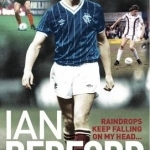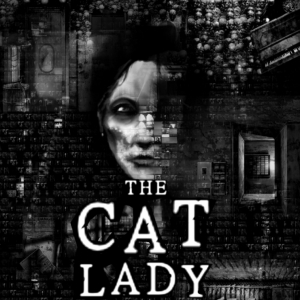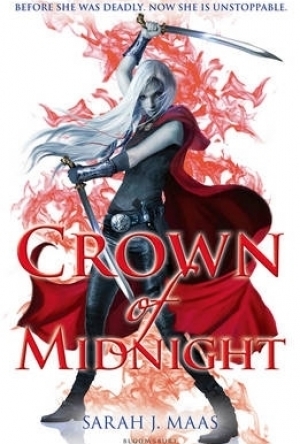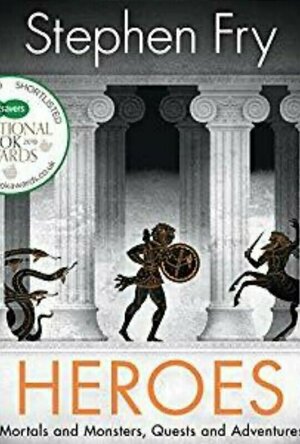Tamsin Clark (15 KP) rated The Cat Lady in Video Games
Jan 26, 2018
The story follows a female protagonist, Susan Ashworth. She's alone and on the verge of suicide, constantly questioning the worth of her existence. After a significant event, she meets an odd woman who sets her on a journey to meet 5 very dark people who may change her outlook on life....for better or worse. Who can she trust, if anyone at all?
I would recommend that if you suffer from mental illness, suicidal thoughts or if you have issues with emotional triggers then you either don't play this or you play with others (unless you know you're in a good place). While the game IS a basic point and click, it still deals with a LOT of mental health issues; some of the scenes were hard even for me, and I consider myself in a good place mentally right now.
Overall I was seriously impressed with this game, it took me 11 hrs to play but that was including distractions and just leaving the game sitting while I did things, so I maybe got about 8 hrs of straight play. Indie horror point and clicks are so rare and this one is an example for the entire genre.
Kyera (8 KP) rated Crown of Midnight in Books
Feb 1, 2018
Having won the title of King's Champion, Celaena must do the King's bidding or risk the lives of her friends. Despite having trained at the Assassin's Keep and being called Adarlaine's Assassin, Celaena is reluctant to kill the King's enemies and instead comes up with a plan. She spends the majority of the book embroiled in a plot to end the King's rule, as she tries to obtain information that she can give to the King with the hopes of shortening her contract as his Champion.
This book takes you on a much more emotional journey with romance, betrayal, an unexpected (and brutal) character death, and a big reveal in its final pages. The characters are developed more in this novel and we also learn more about their histories. It was nice to see the development so that the characters felt more like real people with unique events that shaped them as people.
While there is continued mention of places other than Adarlaine, the story does not journey beyond the capital and continue to world-build, yet. The author mainly focuses on weaving in plot points that will later be incredibly important to the story.
Overall, the writing feels a little more mature than her previous book which at times came across as juvenile. The story ends in such a way that you immediately need to read the next book in the series. I would definitely recommend this series to young adult/teen readers who enjoy fantasy books.
BookwormMama14 (18 KP) rated Love's Faithful Promise (Courage to Dream #3) in Books
Jan 2, 2019
Oh I just love Deirdre and Matthew's journey of love! Keep your fan nearby. Because let me tell you...Their romance is so pure, passionate, precious, and sweet. But don't let my starry eyed, romance gushing fool you, this book gets INTENSE! I was literally sweating with anticipation right around page 281...trust me...you will know what I mean. Definitely put my stress ball "heart" I got from CFRR to good use (thank you Just Commonly).
Will you cry? Maybe. Will you want to smack some sense into people? Probably. Will you fall in love with Irish Meadows and the O'Leary clan? Without a doubt...Yes!!! Make sure you start your journey with the beginning of the series, Irish Meadows. Within these pages I pray you find hope and courage to live out the dreams the Lord has placed in your heart.
I received a free copy of Love's Faithful Promise in exchange for my honest review. All opinions expressed are mine alone.
ClareR (6081 KP) rated Heroes (Stephen Fry’s Great Mythology Volume 2 in Books
Oct 24, 2019
So, Stephen tells us about Heracles, Perseus, Jason and others that I wasn’t as familiar with, like Oedipus and Bellerophon. Honestly, this book is bursting with heroes, and whilst this sounds like a ridiculous thing to say, what I actually mean is that I didn’t feel as though they were short changed in their space. All of the heroes were given their moments of glory again: their stories were told with care, with humour and with feeling. I’m hoping more will come out of this ‘Great Mythology’ series, because I am well up for listening to more. I’ll even pick up my Audible subscription again. I just need to get through the long list of Audible books that I have first...
Anyway, I would highly recommend this book and Mythos as well, and if you can, definitely listen to the audiobook version. You won’t regret it!

Solitairica
Games
App
"A bright, funny, and engaging mix of ideas that's well worth adding to your home screen." - Pocket...

Need A Hero
Games, Entertainment and Stickers
App
Gear up, grab your donkey friend, and venture on a magical odyssey full of humor, intense fighting,...

Turutu A trip to the moon
Book and Education
App
*** One of the most wonderful adventures of all times, finally transformed into an app*** *** This...

What's Exactly the Matter with Me?: Memoirs of a Life in Music
Book
I have been seeking P.F. Sloan, but no one knows where he's gone. -from the song 'P.F. Sloan' by...

Raindrops Keep Falling on My Head...: My Autobiography
Book
In an era before big money arrived, Ian Redford, the son of a Perthshire farmer, was stigmatised as...

Relentless: Seven Marathons, Seven Continents, Seven Days
Book
The World Marathon Challenge-seven marathons on seven continents in seven days-is the ultimate race...



